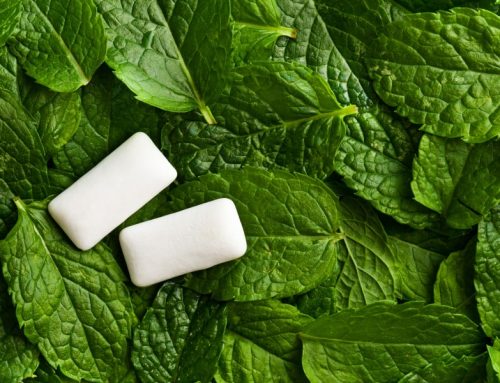Green tea is good. It tastes good, but it's also good for your health. Packed with so many virtues, it is constantly under the microscope of scientists and health specialists.
Consumed for thousands of years, we know that it is rich in antioxidants, helps reduce bad cholesterol and boosts the immune system...
But did you know that it also contributes to good oral health?
Secret number 1: antioxidants[1]
Visit nutritional quality of this unoxidized leaf is generally superior to that of fermented teas. One of the differences lies in the greater high concentration of antioxidantsincluding EGCG, a catechin.
Antioxidants neutralize or reduce the damage caused by free radicals.
In the mouth, saliva will benefit from catechins, as will the various structures that need to regenerate: soft tissue, gums, etc.
Secret number 2: fluoride [2]
Fluorine is naturally present in tea leaves. The leaf absorbs it from the soil as it grows.
This trace element is a natural antibacterialIt also significantly increases the enamel's resistance to acid attacks by oral fauna.
Healthy teeth and gums
- Oral bacteria are not resistant to green tea. By reducing this microbiome, the acidity of plaque and saliva is reduced, which has a positive impact on the health of the mouth. preventive effect considerable protection against cavity formation.
- The presence of fluorine contributes to strengthen tooth enamel and improve its protection against acids.
- Green tea has anti-infectious specificities which helps to prevent or control periodontal inflammation, such as the gingivitis.
- Antioxidants have the following properties inhibit cellular modifications. Green tea helps to prevent the development of oral cancers and precancers. [3]
Beneficial, provided you don't overdo it!
As with all things, moderation is preferable. To reap the multiple benefits of green tea, the recommended intake is 3 to 5 cups a day. Remember that this hot beverage contains theine (identical to caffeine) and fluoride.
An overdose of both can have undesirable side effects.
Green tea plays an indisputable role in achieving and maintaining optimal oral health. Any excuse is good to pour yourself a cup of this elixir, consumed without sugar, of course!
Sources:
[1] https://leblognutrition.files.wordpress.com/2018/04/s41598-018-22994-3.pdf
- Effects of green tea on miRNA and microbiome of oral epithelium Guy R. Adami1 , Christy C. Tangney 2 , Jessica L. Tang1 , Yalu Zhou1 , Saba Ghafari3 , Ankur Naqib4 , Saurabh Sinha3 , Stefan J. Green 4 & Joel L. Schwartz1
[2] https://www.nutriting.com/conseils/tout-savoir-sur-le-the/?v=3e8d115eb4b3 with a particular focus on the following study: https://www.ncbi.nlm.nih.gov/pmc/articles/PMC4808922/
[3] https://www.passeportsante.net/fr/Solutions/PlantesSupplements/Fiche.aspx?doc=extrait-the-vert_ps
particular interest in the following studies:
- Gao YT, McLaughlin JK, et al. Reduced risk of esophageal cancer associated with green tea consumption. J Natl Cancer Inst. 1994 Jun 1;86(11):855-8.
Sun CL, Yuan JM, et al. Urinary tea polyphenols in relation to gastric and esophageal cancers: a prospective study of men in Shanghai, China. Carcinogenesis. 2002 Sep;23(9):1497-503.
36. Wang LD, Zhou Q, et al. Intervention and follow-up on human esophageal precancerous lesions in Henan, northern China, a high-incidence area for esophageal cancer. Gan To Kagaku Ryoho. 2002 Feb;29 Suppl 1:159-72. - Tsao, A. S., Liu, D., Martin, J., Tang, X. M., Lee, J. J., El-Naggar, A. K., Wistuba, I., Culotta, K. S., Mao, L., Gillenwater, A., Sagesaka, Y. M., Hong, W. K., and Papadimitrakopoulou, V. Phase II randomized, placebo-controlled trial of green tea extract in patients with high-risk oral premalignant lesions. Cancer Prev.Res.(Phila Pa) 2009;2(11):931-941





Leave A Comment
You must be logged in to post a comment.